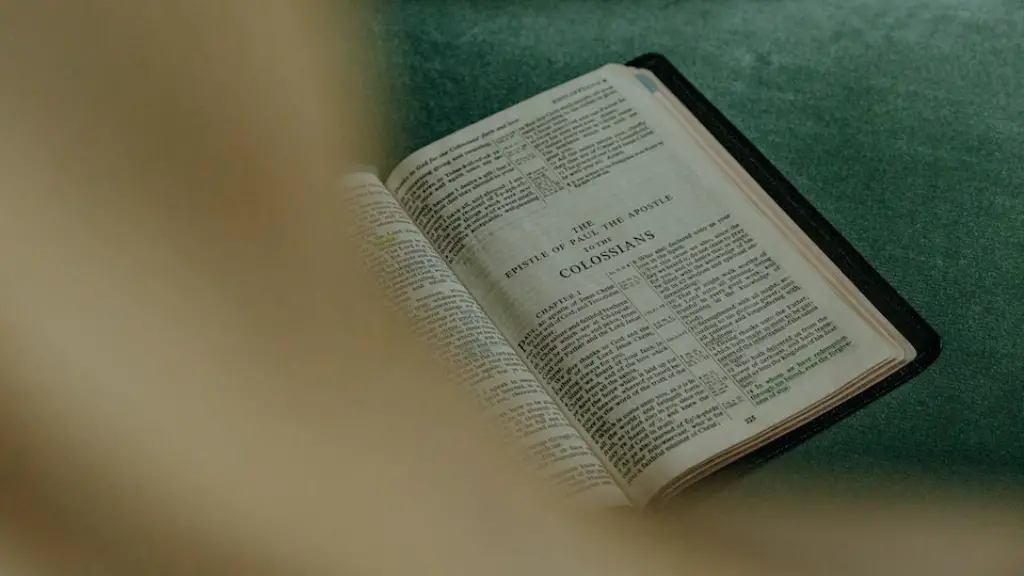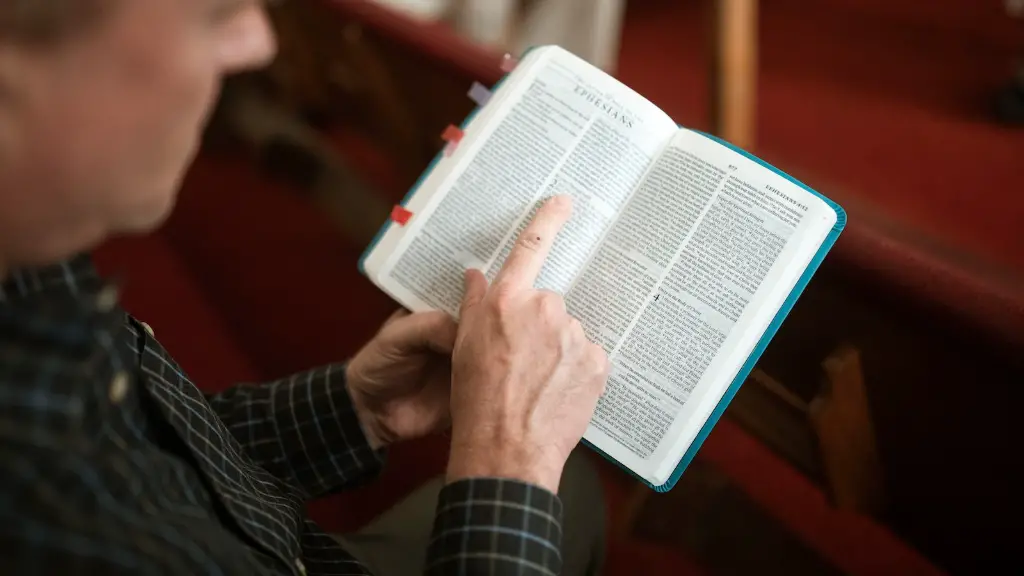History of Wicked in the Bible
The Bible is filled with stories of wickedness, from the Fall of Adam in the Garden of Eden to the wickedness of King Herod. While the Bible doesn’t explicitly define what “wickedness” means, it does present several examples of wicked people. In fact, there are numerous descriptions of the wicked throughout both the Old and the New Testament. Eve, Cain, Pharaoh, Gehazi, and Judas are some of the most prominent examples in the Bible.
Without fail, all of these characters demonstrate some element of wickedness. In Cain’s case, it was jealousy and murder; in Gehazi’s case, it was stealing and dishonesty. No matter what the story or who the character, wickedness is ever-present. Some of the most famous stories of wickedness in the Bible are detailed below.
The Wickedness of Cain
The story of Cain and Abel is one of the most well-known in the Bible. In the story, Cain attempts to offer one of his fruits as a sacrifice, but God only receives Abel’s offering. In a fit of rage, Cain murders his brother.
This story offers yet another example of the wickedness of mankind, and it strongly suggests that God does not accept offerings from those idle in their hearts. In fact, it shows how God is willing to overlook human error but is not willing to accept actions that manifest wickedness.
What is remarkable about this story is that God does not excuse or condone Cain’s murder, and He places a mark upon him as punishment. This mark symbolizes God’s abhorrence to wickedness and implies that those who seek to do wrong will be punished.
The Wickedness of Pharaoh
The story of the Exodus is another example of wickedness in the Bible. Pharaoh, the tyrannical ruler of Egypt, had enslaved the Hebrews, who were God’s chosen people. To free them, God sent Moses to Egypt to demand the Pharaoh to let the Israelites go.
The Pharaoh, however, was no willing partner. He hardened his heart and refused to comply, leading to a string of plagues being inflicted upon the Egyptians. This story of the Exodus offers a powerful example of the consequences of wickedness and how one’s choices can lead to dire consequences.
It also demonstrates how arrogant and stubborn behaviour can blind one to their wrongdoings; Pharaoh refused to accept that he was in the wrong and begrudgingly let the Hebrews go. It’s no wonder that the Pharaoh is often looked upon as a textbook example of wickedness.
The Wickedness of Gehazi
Gehazi, the servant of the prophet Elisha, is another example of wickedness in the Bible. This story begins when Elisha is confronted by an unusual man who asked for his forgiveness. After Elisha grants the man his request and sends him away, Gehazi, with jealousy in his heart, chases after the man and demands he be rewarded for his kindness.
To Gehazi’s surprise, Elisha curses him for his wickedness and accuses him of turning against the Lord. This story shows how even those in positions of authority can stray from the path of righteousness and become embroiled in wickedness. It warns them of the consequences of their misdeeds and encourages them to stay faithful to God’s cause.
The Wickedness of Judas
The story of Judas is among the most famous in the Bible and showcases the most extreme display of wickedness. Unlike the other examples mentioned, Judas actively sought out wickedness, going so far as to betray Jesus Christ of Nazareth in order to receive reward.
This event is so iconic that it led to term “Judas-like”, being used to describe someone who betrays someone they are close to out of either greed or spite. In the Bible, this act is seen as the ultimate in wickedness and Judas is routinely scrutinized for his misdeeds.
Satan, the Father of Wickedness
Satan is arguably the most notorious example of wickedness in the Bible. He appears for the first time in the book of Genesis, when he tricks Eve into disobeying God’s instructions. Satan is ultimately responsible for the introduction of wickedness into the world and is portrayed as an iron-fisted ruler of the underworld.
Whether or not he is an actual being or a symbolic representation of evil is up for debate, but what is clear is that his evil deeds are in direct opposition to God’s will. The Bible paints Satan as a contemptible and spiteful figure who instigates wickedness wherever he goes.
God’s Judgment of Wickedness
While the Bible offers several examples of wickedness, it also details the consequences that come along with it. Time and again, wicked people are shown receiving swift and often drastic punishment for their deeds. Whether it’s Cain being cursed and banished, Pharaoh thrice-smitten by the hand of God, or Judas dying in agony, God clearly does not like wickedness.
These examples demonstrate God’s hatred of evil and illustrate how He deals with it. He shows that wickedness cannot endure and will be punished, no matter how insignificant it may seem.
The Purpose of Wickedness in the Bible
The Bible often uses wickedness as a foil for righteousness; it is only by contrasting the two can one truly understand what is good and what is evil. Moreover, it shows the consequences of wickedness, demonstrating how God does not tolerate those who stray from His path.
By providing several examples and stories of wickedness, the Bible is trying to make a statement: that God will not forgive those who act in a wicked way. Everyone should be aware of this and act in accordance with it.
The Nature of Wickedness in the Bible
Throughout the Bible, wickedness is shown as a destructive force: it is often portrayed as an enemy which must be kept in check, lest it consume one’s soul and sever one’s ties to God. In a sense, the Bible acts as a warning against wickedness and a reminder of the consequences that come with it.
It’s clear that wickedness is something to be avoided, or else one is liable to suffer terribly at the hands of God. One should always remember that evil will never be tolerated and will be punished swiftly and severely.
The Wicked in Contemporary Society
While the Bible paints a vivid picture of wickedness, it doesn’t end there: the characters and examples in the Bible of wickedness offer an opportunity to understand the nature of wickedness in current society. Its messages are still relevant today and help explain why some people can be so cruel and heartless, when the consequences for wickedness are so severe.
In society today, there are people who act wickedly and often go unpunished. These people are especially dangerous because they are able to go about their daily lives, taking advantage of those around them, with little to no consequences.
The Bible offers clean examples of how and why wickedness is wrong. It encourages people to recognize wickedness in their surrounding environments and to take steps to limit or stop it. The key is for people to notice the warning signs and act upon them in order to protect themselves and those around them.
The Role of Education in Stopping Wickedness
The Bible offers a valuable lesson: wickedness will not be tolerated. Unfortunately, in the contemporary world, this warning is often overlooked. In order to effectively fight and prevent wickedness, education is essential.
Our young people must be given the tools they need to resist temptation, as well as recognize and understand why wickedness is wrong. With the right guidance and education, our society can be a safer place, with less instances of wickedness occurring.
In addition to education, people must adopt a proactive approach to stopping wickedness in their communities. This could mean joining a local anti-bullying or anti-hate campaign, informing the the public about the dangers of wickedness or even acting as an ambassador for a cause.
The Impact of Wickedness on Society
The impacts of wickedness can be far-reaching, tearing apart families and communities. It can also lead to violence or other criminal activities. It can also cause tremendous emotional and physical damage to those affected by it.
Those who are wicked tend to lack empathy and put their own needs before those of others. This can leave a trail of destruction in its wake and have far-reaching consequences that can last for generations.
As such, it is incredibly important to recognize, understand and combat wickedness whenever and wherever it appears. Everyone, regardless of age or ability, can contribute to stopping wickedness, which can help make our society a better and more peaceful place.
Psychology of Wickedness
It’s clear that wickedness comes in many forms and affects people of all ages. To understand why people act wickedly, one must first understand what drives them to do so.
Psychologists suggest that certain personality traits are linked to wickedness, such as a lack of empathy, impulsivity or a taste for thrill-seeking. In addition, people who were the victims of abuse or neglect may act wickedly in order to protect themselves from further harm.
In some cases, wickedness may be caused by a mental disorder, where the individual is not aware of their actions or may be acting out of desperation. Regardless of the cause, it is important to recognize that individuals are often responsible for their own actions and can overcome wickedness with proper education and guidance.
Preventing Wickedness
It is essential to take steps to prevent wickedness whenever possible, as the consequences of acting wickedly can be very severe. Despite its horrors, wickedness can be stopped and prevented if everyone is aware of what it is and how to combat it.
One way to prevent wickedness is to foster a sense of community. People need to feel connected to each other and have access to support services, such as counselling and mental health services. This will not only create an environment in which wickedness is less likely to occur, but it will also help those who have been affected by wickedness to recover and heal.
Another way to stop wickedness is to encourage people to speak out whenever they witness it. By getting help from friends, family members or professionals, people can bring wickedness to the surface and begin to take steps to address it.
Finally, people must take responsibility for their own actions. It isn’t always easy, but it is necessary in order to ensure that wickedness does not spread. By being mindful of one’s actions and taking responsibility for them, one can help to limit incidents of wickedness in their community.



